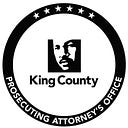Legislature Approves KCPAO Bill to Crack Down on Catalytic Converter Theft
After multiple legislative sessions of the King County Prosecuting Attorney’s Office (KCPAO) working directly with lawmakers to write and pass legislation to combat catalytic converter thefts, HB 2153 has passed both chambers and will now head to Governor Inslee’s desk for signature.
As recently as last month, the KCPAO testified before the legislature to urge the Senate Transportation Committee to support the now-passed bill, which aims to shrink the marketplace for stolen catalytic converters.
“It’s past time for tougher policies to curb the demand for catalytic converters that are illegally stolen and sold throughout Washington State,” said King County Prosecuting Attorney Leesa Manion. “Finally, we have legislation that can help turn the tide on catalytic converter thefts. I applaud Washington lawmakers, and am especially grateful to the bill’s prime sponsor, Rep. Cindy Ryu, for supporting this commonsense bill.”
“This bill takes aim directly at the wild west marketplace of buying and selling illegal catalytic converters,” said Senior Deputy Prosecuting Attorney Gary Ernsdorff. “These thefts are extraordinarily disruptive for residents in King County and across Washington State; this legislation has the potential to fundamentally change the conditions that allowed the market for illegal catalytic converters to exist.”
On February 22, 2024, Ernsdoff testified before the Senate Transportation Committee, explaining the bill’s provisions for thoughtful regulation, including: requiring catalytic converters to be marked so they are traceable, required recordkeeping and inspection, funded enforcement, and sure and swift penalties for recyclers who are not in compliance. This plan would decrease demand for illegal catalytic converters and allow law abiding recyclers to continue conducting their legal and profitable businesses.
TRANSCRIPT:
Good afternoon, Chairman Liias, members of the committee, and thank you to Representative Ryu and other members who sponsored ESHB 2153.
My name is Gary Ernsdorff. I’m a Senior Prosecutor with the King County Prosecuting Attorney’s Office.
I’ve seen the rapid proliferation of catalytic converter theft and the resulting damage to individuals and our communities.
I was part of that workgroup you referenced earlier. We did some really good work — there were great people representing many aspects of the industry.
One of the more disturbing findings that we came up with, was how this crime disproportionally impacts lower income folks in your jurisdictions. The people who can least afford it.
Those folks often have older cars with more valuable catalytic converter; they don’t always have insurance to cover losses, and they may only have one vehicle — meaning the resulting impact can impact the ability to get to a job, school, or other necessary daily functions.
The workgroup found that one of the best way to combat this is to more carefully regulate detached catalytic converters and the marketplace.
Currently once a catalytic converters is detached from a vehicle, they are impossible to trace. Law enforcement has no ability to trace them back to vehicles.
So 30 seconds of work by a prolific thief and they now possess an untraceable $500 commodity, and it’s not difficult to convert them to cash.
Right now, we have a wild west marketplace that conducts the lion’s share of illegal tractions going on. That marketplace has no licensing requirement, no record keeping, no inspections, no regulations, no nothing.
And as a result, there are plenty of criminal operators occupying that space. It’s really no wonder why this crime has taken off and why so many Washingtonians have been victimized.
It is time for a change.
ESHB 2153 directly addresses the issues the work group identified; it:
1. Requires catalytic converters to be marked so they are traceable, so law enforcement doesn’t have to walk away from that pile of catalytic converters that everyone knows is stolen but they have no way to currently trace back.
2. Requires purchasers to be licensed, regulated, and inspected, and;
3. It creates specific and real penalties for those actors will continue to play outside the rules.
Consumers get protection, law enforcement gets the tools they need, this is a win for every Washingtonian.
Senators, 2153 is smart, easy, and cheap and I encourage you to vote yes on this bill.
With my remaining time I want to address a couple questions previously raised. On inspections, our workgroup looked for any inspections going on statewide for purchase of any catalytic converters and we found evidence of zero. Zero inspections going on right now. 2153 will change that.
There was a question about serial numbers vs VIN numbers. Catalytic converters do not have individualized serial numbers; they have model numbers that help law enforcement trace it back to a vehicle, maybe, but not individualized. What we targeted in our workgroup is VINs; there’s already a database of VINS, law enforcement can piggyback on that preexisting database. It’s an easy way to make these identifiable.
And third, impact on current license holders. There are already regulations requiring them to keep records of their business transactions. This bill targets those unlicensed individuals out there buying and selling stolen catalytic converters every day. This burdens the thief — not the upstanding businessperson in our community.
